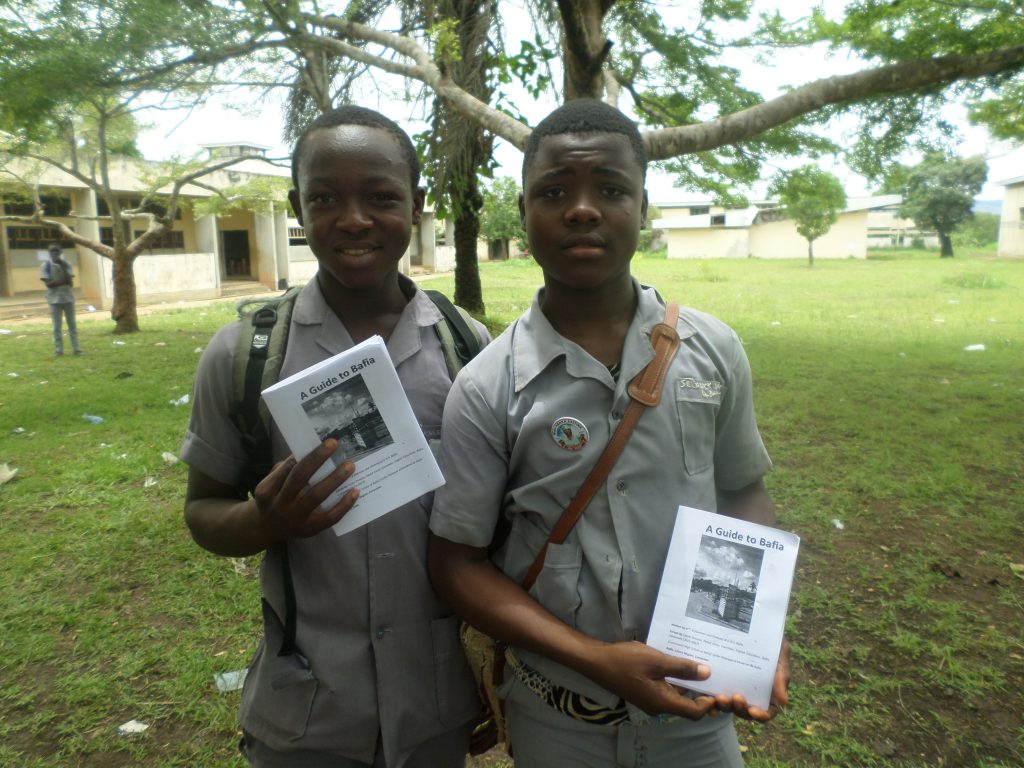When I first starting teaching my 8th grade class in September last year, I told them a lot about California, especially San Francisco, showing them pictures of Alcatraz or the Golden Gate Bridge. We even talked about American holidays, and talked extensively about the importance of Thanksgiving in my culture and family in California. Many students craned their necks to catch a glimpse of the photos that I briefly waved in front of their eager faces as I wandered around the class of 94 students.
One day out of curiosity I asked the class what they thought about their city Bafia. I was sad to hear a lot of negative comments about their hometown, as if they were ashamed. My students protested that Bafia could be nothing, in comparison with San Francisco, and even wondered how I could have left such a place to come here! However, when I asked them what they knew about the city, I got a lot of blank stares, and realized that maybe it was not a lack of appreciation of their town, but rather a lack of awareness.
Therefore since December some of my students and I have been on a mission: to discover and learn about Bafia and share it with others (in English of course!). Our first challenge was finding information, which is when the technology at our school became extremely handy. Every day for multiple weeks students came after school to do research online in order to learn more about their topic, many of them for the first time. What started off as a simple Google search became more and more frustrating as students found very little, if anything about their topic online. Worse, the content we did find often had many typos, or was blatantly inaccurate. Interestingly enough the best information found was sometimes Peace Corps Volunteers’ blogs, which tended to show up at the top of the search list!
This was just another reminder to us that when it comes to reliable content, the internet can sometimes be a biased place. According to the Wikipedia organization in Cameroon, only 5% of content online is about Africa, and only 3% of that information is written or created by Africans themselves. Not only is the information not there, but it can be misrepresented or inaccurate. Fortunately, groups like the Wiki club in Yaoundé, or the annual Wiki Loves Africa Competition (http://wikilovesafrica.org/) are working hard to change this. By encouraging academics, knowledgeable writers, and those with an artistic eye to contribute to content online, their hope is to provide a more authentic and honest representation of the African continent from those that know it best.
When technology failed us, we had to go straight to the source, and ask our community. The students went out and interviewed many different members about their opinions and their knowledge of Bafia. It only goes to show that there is so much information to learn right here, even if there is so little written about it!!
Although the research was not as successful as we would have liked, the students were able to try out their online navigational skills for the first time. These are skills that they can use in the future to boost their learning on their own time in the multimedia center at our school. Now if they struggle to understand a topic in class, they have the know-how to look it up online themselves and use their critical thinking skills to search and find good quality sources of information.

students meeting with Senior Divisional Officer
I may not have gotten all 94 students involved in the project, but those that did worked tirelessly after school to create a final booklet about their town which they entitled “A Guidebook to Bafia.” The book, with topics ranging from health to culture to agriculture is a work that in fact, they are quite proud of.


